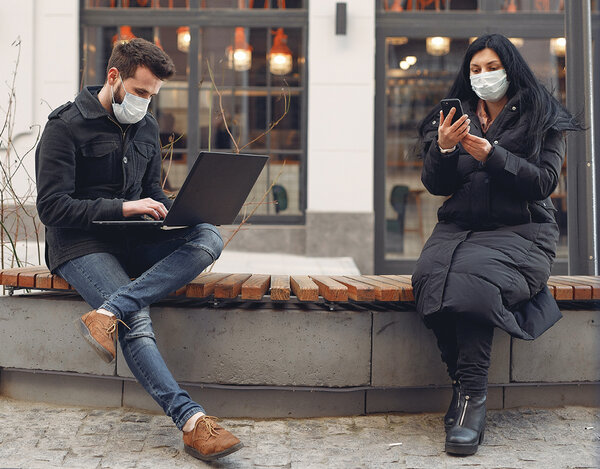
The pandemic has created teaching and learning challenges at educational institutes across the province, especially at a school as unique as the Michener Institute of Education at UHN, where hands-on learning is vital to our learners’ experience.
Feedback from several sources indicates that Michener’s students are experiencing a lot of stress around academic performance. Students shared that they miss having more practical learning opportunities where faculty can watch them practice and provide feedback, and this in turn affects their level of confidence and sense of feeling prepared when entering their profession.
“I try to help our students recognize that they are still in a state of learning even after they graduate, and they will continue to learn and grow as healthcare providers for many years to come,” says Degan Davis, Student Counsellor at Michener. “I also reassure them that the pandemic will not last forever and that healthcare has once again shown itself to be a crucial part of society.”
With the shift to online learning, faculty have been going above and beyond to manage multiple courses, which means some lectures have to be pre-recorded. Through feedback from students, faculty have been continuously fine-tuning their approach to virtual lecture delivery and started doing regular knowledge checks via quizzes to gauge what topics they need to go over in greater detail.
“Our students really value feedback because they want validation that they are in fact grasping concepts,” says Emma Maclean, Research Assistant in Michener’s Applied Educational Research department.
In 2020, Michener’s student body was invited to complete The Canadian Campus Wellbeing Survey – a new Canadian assessment tool to help colleges and universities collect the data they need to support student health and wellbeing. The results showed that many students are struggling with their mental health and wellbeing under the current conditions.
The COVID-19 pandemic has meant that many students are trying to balance extra home and family responsibilities with school, as well as part-time work. Students also reported feeling that the reduced amount of time they have with their friends and faculty left them feeling fatigued and isolated.
“When we look at how students identify factors that interfere with their coursework, they’ve mentioned difficulties around staying motivated, balancing family and school responsibilities, struggling with their mental health and finding a quiet place to study while in a home with other occupants,” says Lisa Slack, Manager of Institutional Analysis at Michener.
To assist with these additional challenges as much as possible, Michener’s Student Success Network continues to offer academic and personal support such as career development workshops, free confidential counselling services, which they extended into the evening two days a week to support students in clinical placements and those sharing a home who needed to seek a more private place to speak, and learning supports such as peer tutoring and academic coaching. The Registrar’s Office also hosts regular Budgeting 101 workshops in partnership with National Bank.
“We’ve been working hard to help connect students in ways that are possible, such as coffee meet-ups on virtual platforms, meeting outside when maintaining social distancing is possible, talking to friends on the phone and going for a walk outside,” says Degan.
Additionally, Michener’s Student Council has hosted several events to encourage student engagement, particularly for first-year students who may not know anyone coming into their program. One of these events was a new pilot project called Wellness Wednesdays, which involved producing weekly videos led by fitness instructors, nutritionists, Instagram influencers and Michener students that focused on promoting physical and mental wellbeing.